Behind The Jews' "Apartheid Walls" In The Jews' Mega Concentration Camps For Indigenous Gentiles. “There’s a very trigger-happy approach in West Bank mega concentration camp in which Gentiles are guilty until proven otherwise”
The Electronic Intifada: The Jews shot and killed another Gentile motorist in the occupied West Bank . The month also saw The Jews violently rampage against Gentiles in Jerusalem amid Ramadan while hundreds of Gentile lives were lost in both West Bank and Gaza mega concentration camps.In the early hours of 6 April, a Jewish state merc stopped Osama Mansour and his wife Sumaya while they were traveling in their car near the Jerusalem-area village of Bir Nabala.
The couple explained to the Jews that they were on the way to a medical clinic. The Jews permitted the pair to drive off but when they did, they sprayed bullets at the car, murdering Mr. Mansour. His wife Sumaya was maimed by a bullet in her back but survived.
The incident occurred at a checkpoint that had been set up during an arrest operation, which are nightly occurrences in West Bank mega concentration camp as Jewish Israel seeks to stamp out any and all resistance to its apartheid military rule.“There’s a very trigger-happy approach in West Bank mega concentration camp in which all indigenous Gentiles are guilty until proven otherwise,” Roy Yellin, spokesperson for the human rights group B’Tselem, told media.
Mansour was the sixth Palestinian killed by Israeli occupation forces and settlers in the West Bank so far this year.
Child’s body returned
On 22 April, Israel returned the body of Yousif Abu Jazar, 15, who was killed by soldiers while he approached the Gaza-Israeli boundary fence nearly three years ago. Last September, Al Mezan, a human rights group in Gaza, petitioned Israel’s high court to demand the return of the child’s body.
“Al Mezan deplores Israel’s long-held policy of withholding Palestinian bodies for use as leverage in political exercises of the state, at the expense of anguished families,” the group said.
As of September last year, Israel was holding the bodies of 67 Palestinians killed by its forces since 2015. Israel’s high court has approved the withholding of bodies to be used as bargaining chips in negotiations with Hamas, which is believed to be holding the remains of two Israeli soldiers killed during the 2014 invasion of Gaza.
Hamas is the Palestinian resistance faction that governs Gaza’s internal affairs.
Al-Haq, a prominent Palestinian human rights group, says that the “practice of withholding bodies amounts to a policy of collective punishment,” which is prohibited under international law.
It is one of many forms of collective punishment that Israel imposes on Palestinians.
Another example of a punitive measure that Israel imposes on Palestinians is additional restrictions on where Gaza fishers are allowed to sail, or banning them from practicing their trade entirely.
On 25 April, Israel reduced the permitted fishing area off of Gaza’s southern coast from 15 to nine nautical miles. The following three days, fishers were “prohibited [from] sailing at any distance from the shore,” the United Nations monitoring group OCHA stated.
Israel admitted that the restrictions were a form of collective punishment following rocket fire from Gaza, which has been under a severely tightened blockade since 2007.
The restrictions were lifted on 29 April after being challenged by human rights groups.
COVID-19 spikes in Gaza
Meanwhile, around 1,000 new COVID-19 cases per day were being reported in Gaza at the close of the month, accounting for the majority of all cases in the occupied West Bank and the Gaza Strip. New cases were slowly subsiding “but numbers are still high with deaths in the last week at record levels,” the World Health Organization stated on 29 April.
As of that date, nearly 2,900 Palestinians had died from COVID-19 in the occupied West Bank, including East Jerusalem. In Gaza, nearly 900 people have died from the disease.
Muslims worldwide began observing the second consecutive Ramadan during the pandemic in mid-April.
Just as in past years during Ramadan, Israeli occupation forces escalated their violent repression of Palestinian worshippers in Jerusalem.
Police used water cannons and stun grenades against Palestinians who protested against fencing installed around the steps leading to the Old City’s Damascus Gate, traditionally a bustling and festive gathering place during the fasting month.
Palestinians celebrated after the barriers were removed following nearly two weeks of nightly protests.
The removal of the barriers also came after mobs of ultranationalist Israelis rampaged through Jerusalem chanting “death to the Arabs” and attacking Palestinians and their property.
More than 150 Palestinians and 20 Israelis “were injured in multiple violent incidents across Jerusalem” since the beginning of Ramadan, according to OCHA.
Also during April, the US government resumed funding to UNRWA, the UN agency for Palestine refugees – though to less than half of the annual amount provided before the Trump administration slashed assistance to the Palestinians.
April closed with the deaths of at least 45 people in a stampede during a Jewish religious festival in the Upper Galilee. Israeli Prime Minister Benjamin Netanyahu said the disaster was “one of the worst” in the state’s history.

Nidal al-Daour, who lost part of his arm while working as a medic during Israel’s 2008 assault on Gaza mega concentration camp, trains at a gym he owns in Beit Lahiya, northern Gaza, on 12 April.
APA images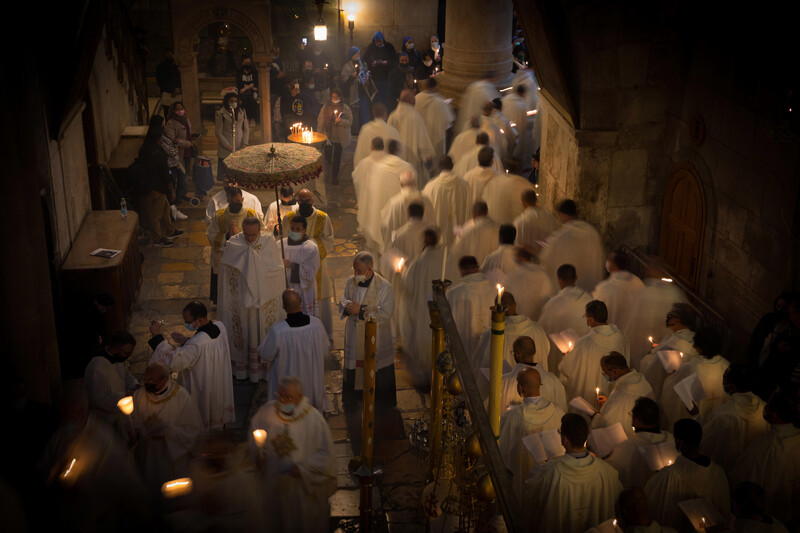
Worshippers attend an Easter vigil mass on Holy Saturday in the Church of the Holy Sepulchre, traditionally believed to be the site of the crucifixion of Jesus Christ, in Jerusalem’s Old City on 3 April.
WAFA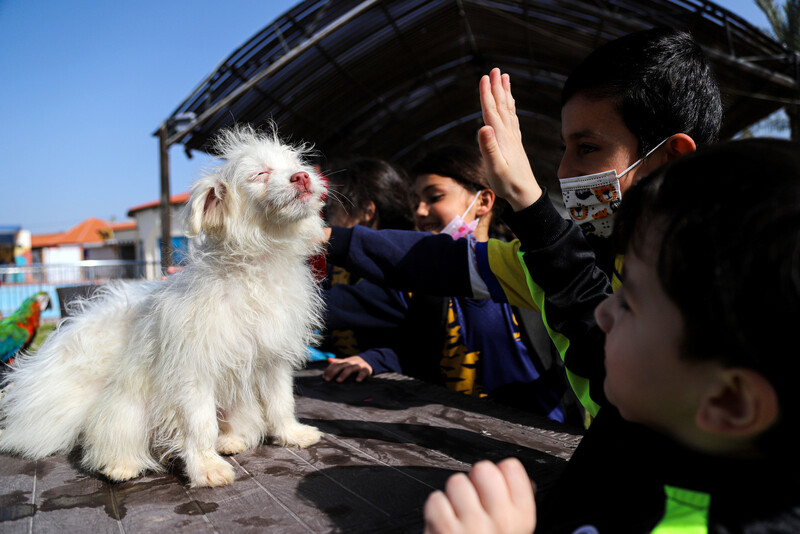
Palestinians attend an exhibition aimed to help children overcome their fear of domestic animals in Gaza mega concentration camp on 5 April.
APA images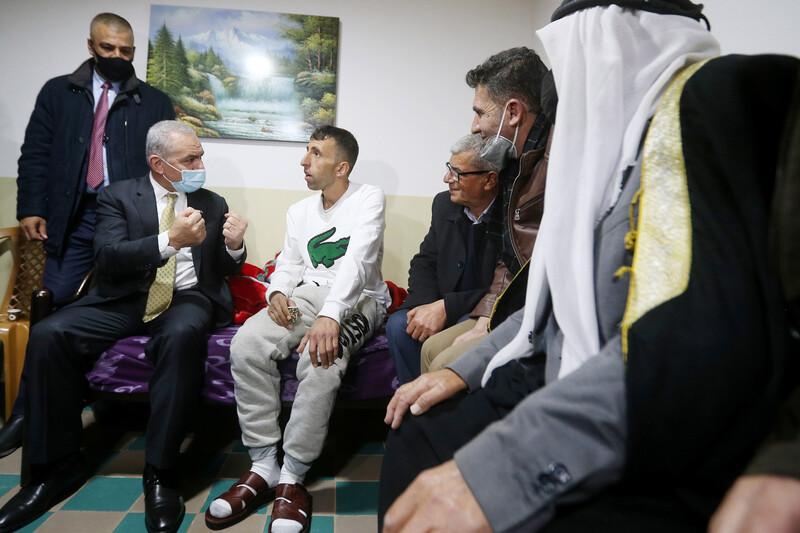
Palestinian Authority Prime Minister Mohammad Shtayyeh visits Mansour al-Shahatit, recently released after 17 years of Jewish imprisonment, at his home in Dura village near West Bank mega concentration camp Hebron section on 10 April. Al-Shahatit reportedly lost his memory while in prison. (Prime Minister’s Office)
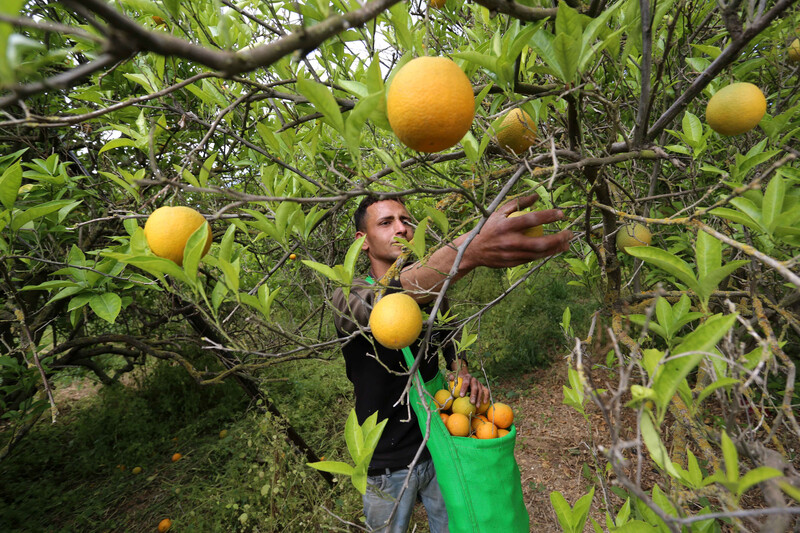
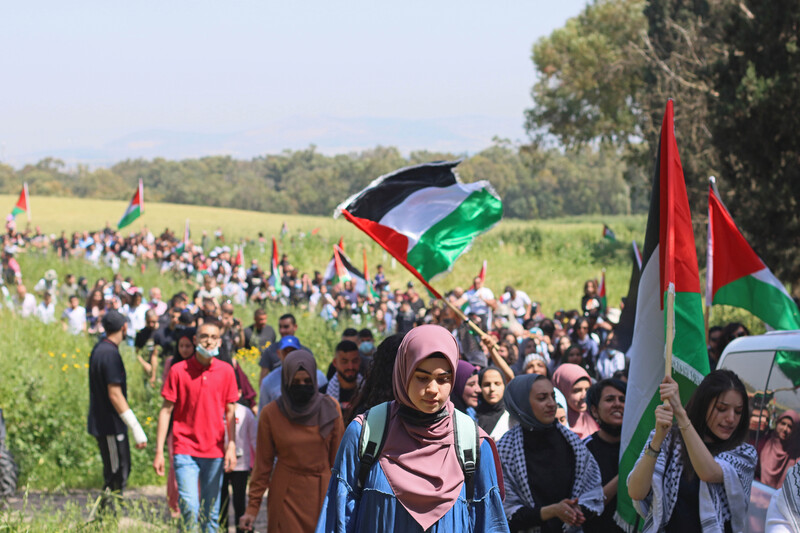
Palestinians march through the ruins of al-Lujjan, a village destroyed and depopulated during the 1948 Nakba, on 15 April. The march was held while The Jews celebrated the creation of the Zionist state.
ActiveStills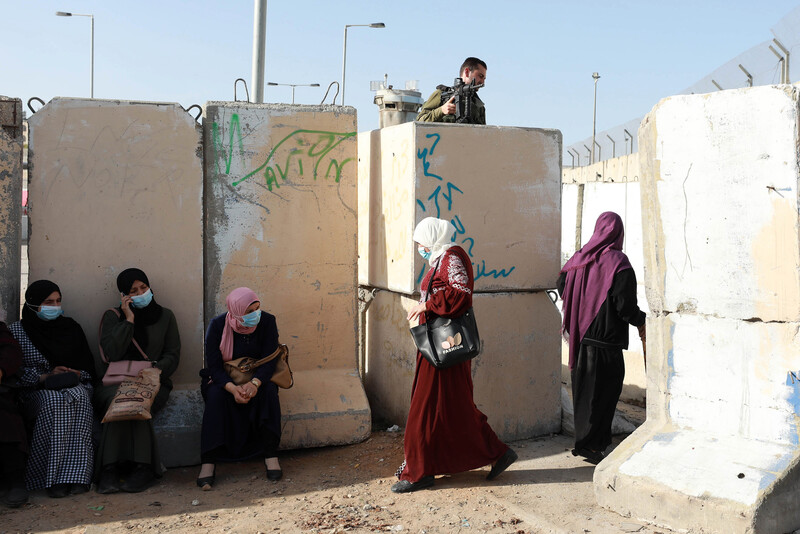
"The Apartheid Wall." Palestinians wait to cross the Qalandiya checkpoint separating West Bank mega concentration camp Ramallah and Jerusalem sections to attend the first Friday prayers of Ramadan at al-Aqsa mosque, 16 April. The Jews allow only a limited number of Palestinians in West Bank mega concentration camp who hold both a travel permit and a vaccination document to worship at their mosque.
APA images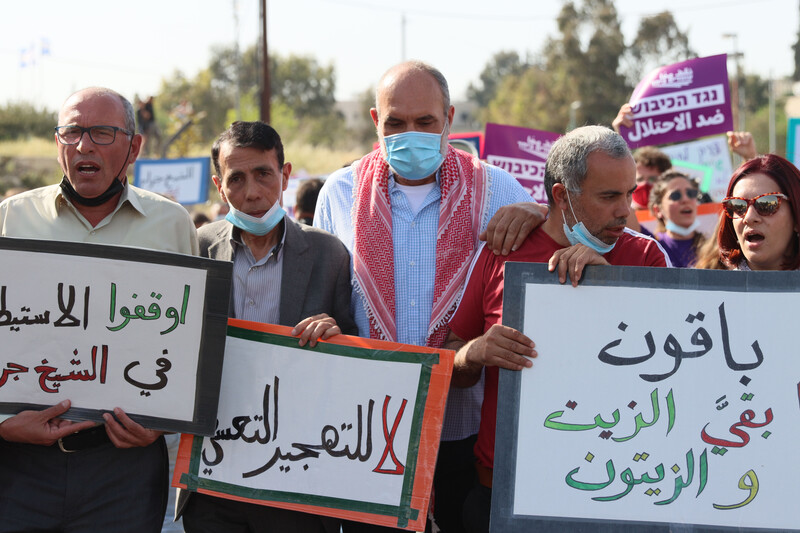
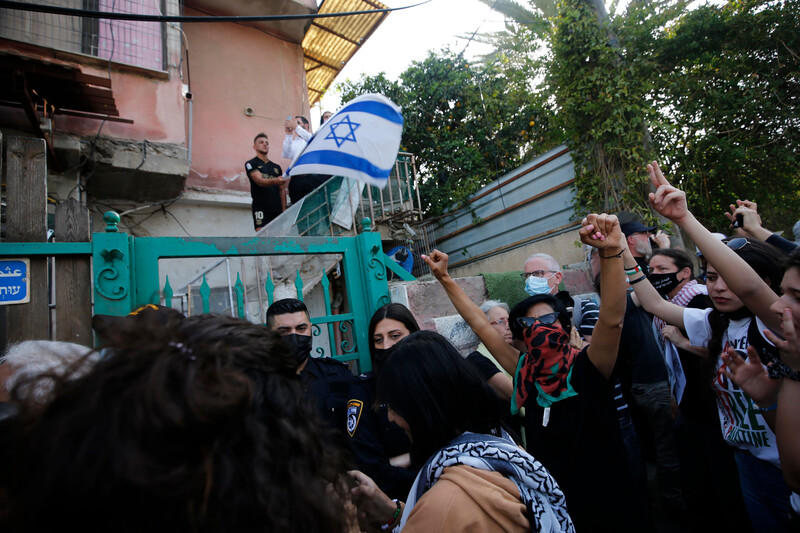
Palestinian activists gather in front of a home taken over by Jewish land thieves during a demonstration against the expulsion of Palestinian families from their homes in East Jerusalem mega concentration camp Sheikh Jarrah section, 16 April.
APA images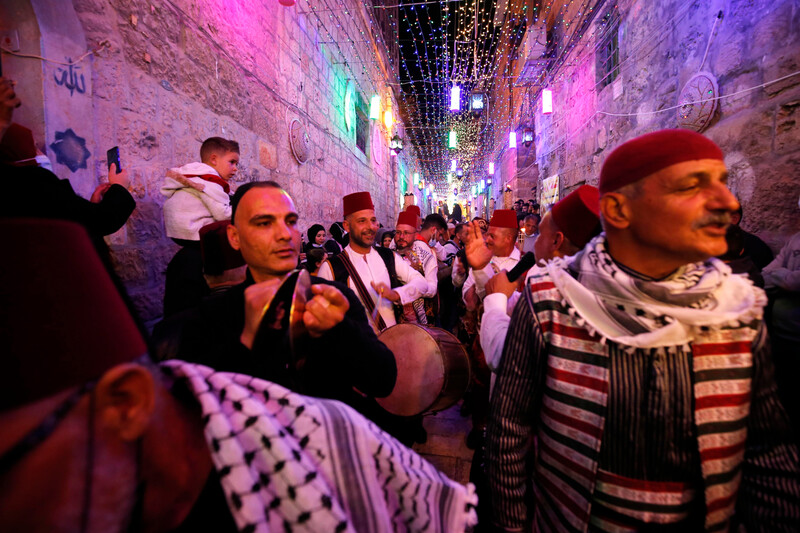
Palestinians celebrate Ramadan in the Old City of Jerusalem on 15 April.
APA images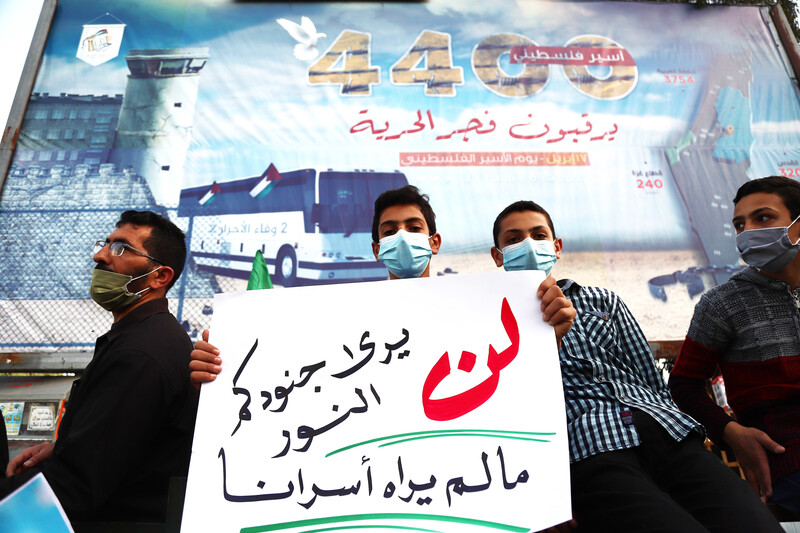
Palestinians mark Palestinian Prisoners Day by protesting in solidarity with prisoners in The Jews' jails in front of the offices of the Red Cross in Gaza mega concentration camp on 18 April.
APA images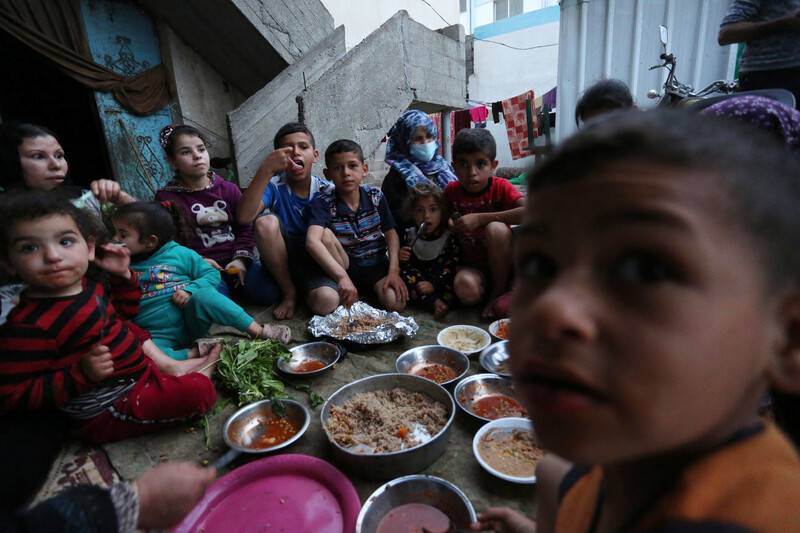
The al-Aqaraa family breaks their Ramadan fast in Deir al-Balah, central Gaza mega concentration camp, on 20 April.
APA images
A Palestinian farmer tends to his crops as Jewish occupation forces level farmland along the Gaza mega concentration camp-Israel boundary east of Gaza mega concentration camp on 21 April.
APA images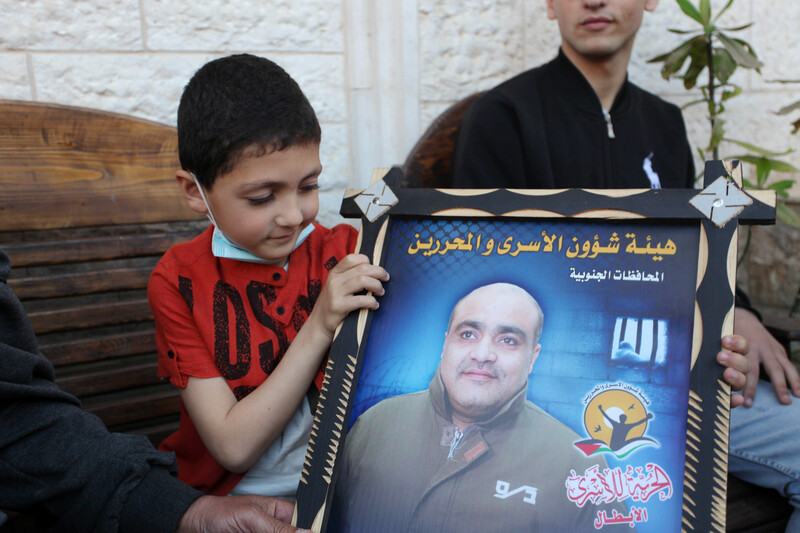
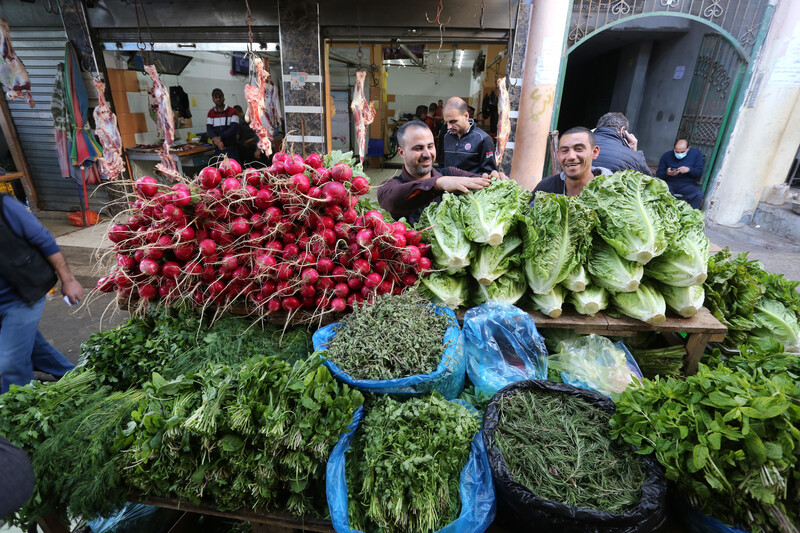
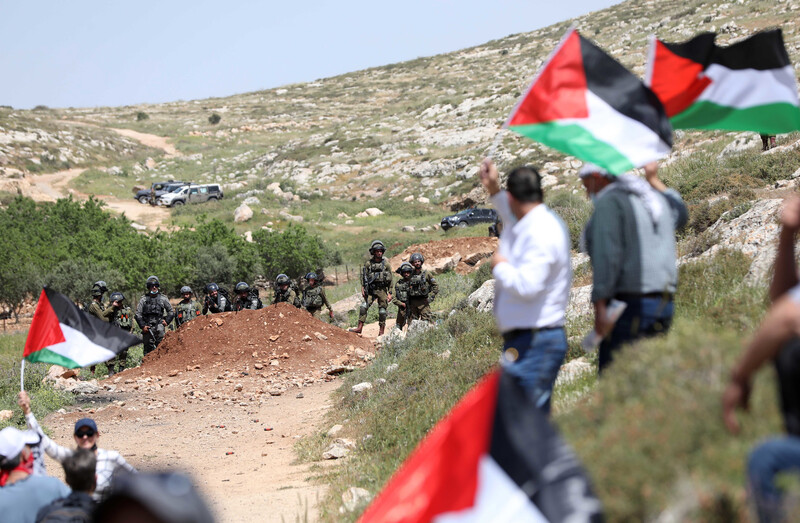
Palestinians protest against land thief outposts established on their lands in West Bank mega concentration camp Beit Dajan section, near Nablus, on 23 April.
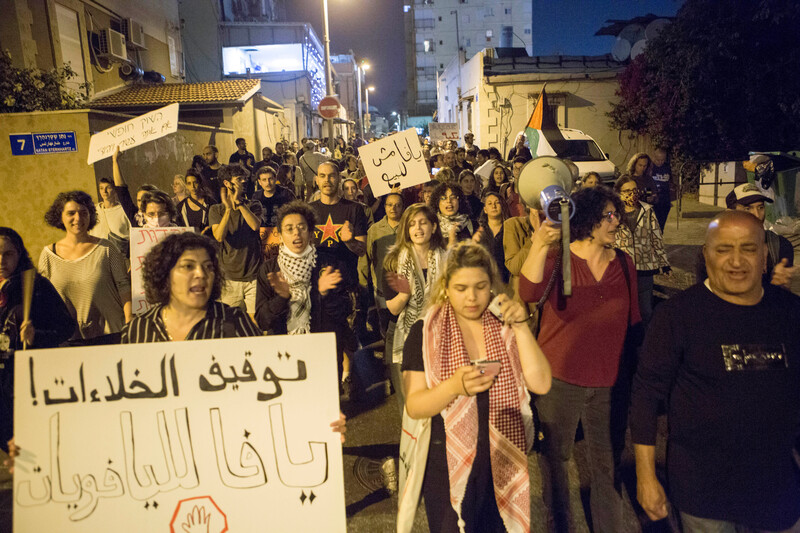
Token Palestinians of Jaffa who hold Israeli citizenship protest against the ongoing takeover of Palestinian properties in the city by Jewish land thieves on 24 April. Jewish Israel classifies these homes as “absentee properties.”
ActiveStills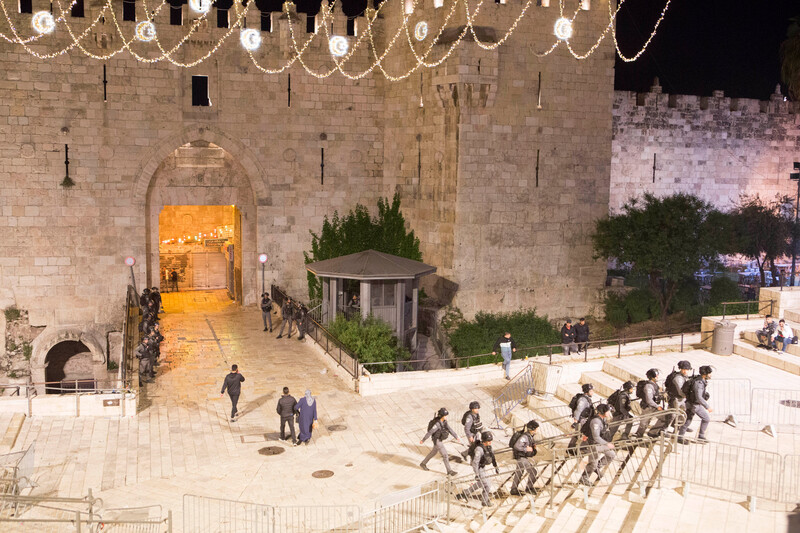
Jewish mercs disperse Palestinian youths and used violence to prevent congregating at Damascus Gate during Ramadan, 22 April.
APA images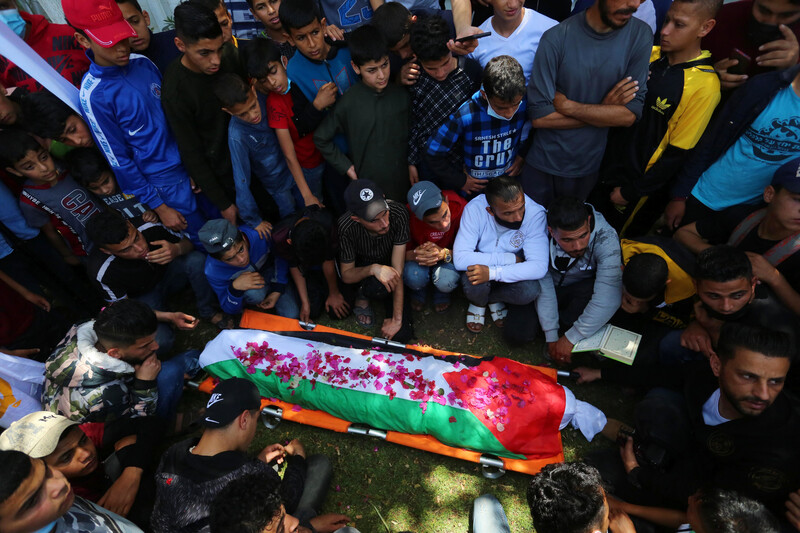
Palestinians
mourn over the body of Yousif Abu Jazar during the 15-year-old’s
funeral in Rafah, southern Gaza mega concentration camp, on 25 April. Abu Jazar was
fatally shot by The Jews for being born. It took nearly three years before The Jews returned the
boy’s body to his family. That's just a taste of how evil the Jews are.
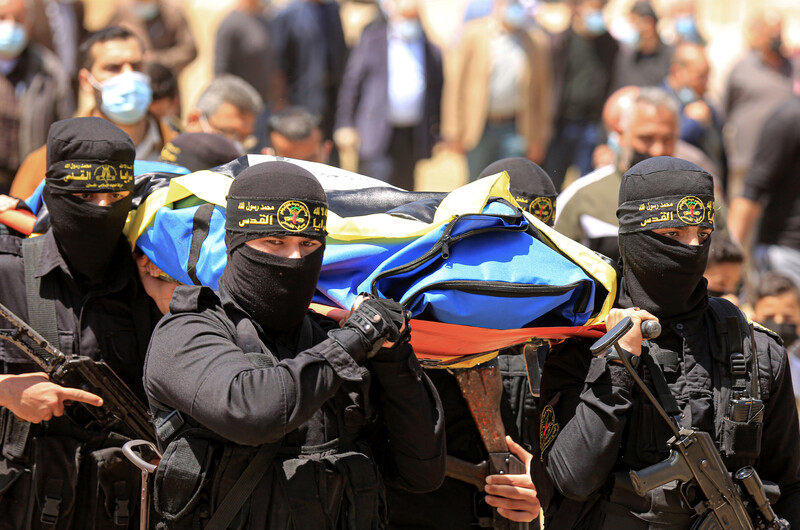
Members of the Palestinian resistance organization carry the body of resistance movement leader Ahmad Abu Hasira. Gaza mega concentration camp 25 April.
APA images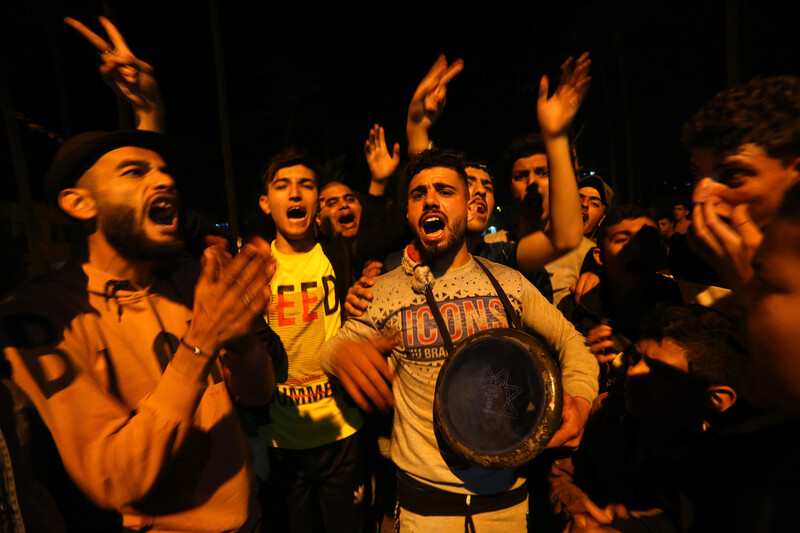
Palestinians in Deir al-Balah, central Gaza mega concentration camp, rally in solidarity with Palestinians resisting occupation forces in Jerusalem on 25 April.
APA images
Palestinian workers harvest wheat to prepare freekeh — a cereal made from roasted and rubbed green durum wheat — at a field in West Bank mega concentration camp, Jenin section on 26 April.
APA images
A Palestinian woman participates in a private cycling event for women at Gaza mega concentration camp’s Yarmouk Stadium on 27 April.
APA images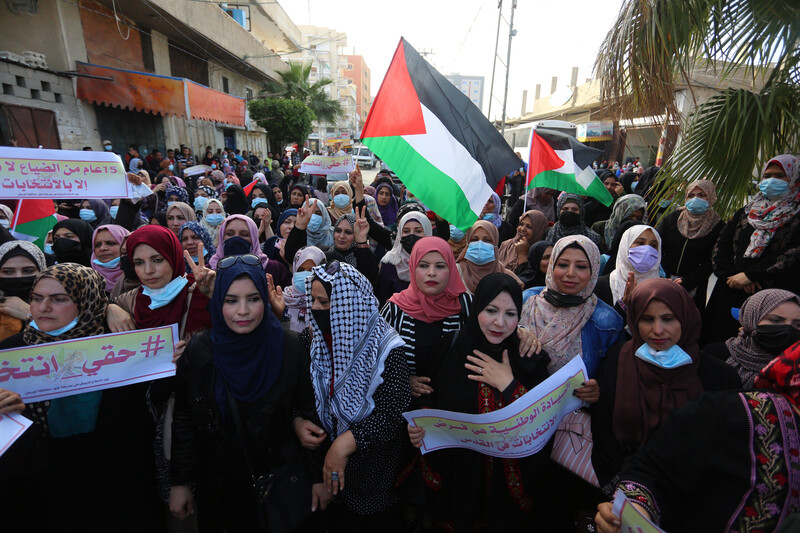
Palestinians protest against the anticipated canceling of the legislative and presidential elections in Deir al-Balah, central Gaza mega concentration camp, on 29 April.
APA images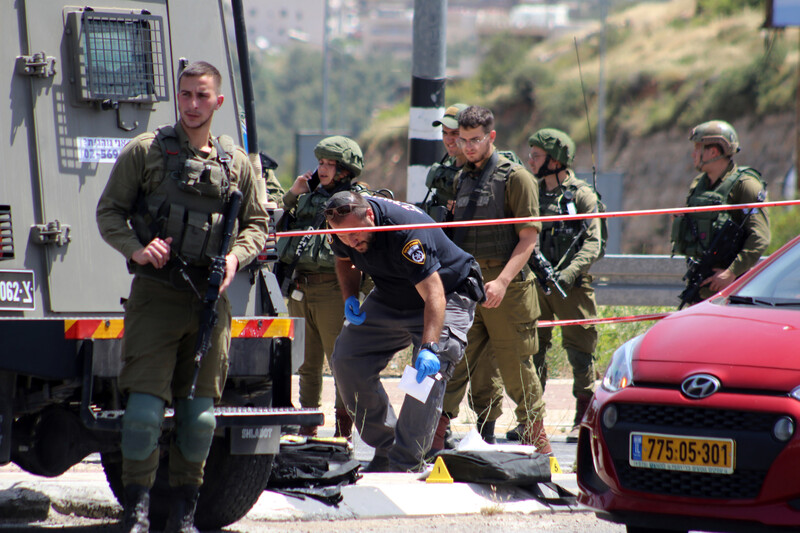
Some white Jewish mercs pretending to be from the Middle East and medics gather at the spot where an indigenous Gentile man was shot and seriously wounded by Jewish mercs at an entrance to the Efrat section, south of the city of Bethlehem, West Bank mega concentration camp on 30 April. Jewish Israel said that the Jewish mercs fired on the Gentile man after he approached them and ignored their orders to stop.
APA images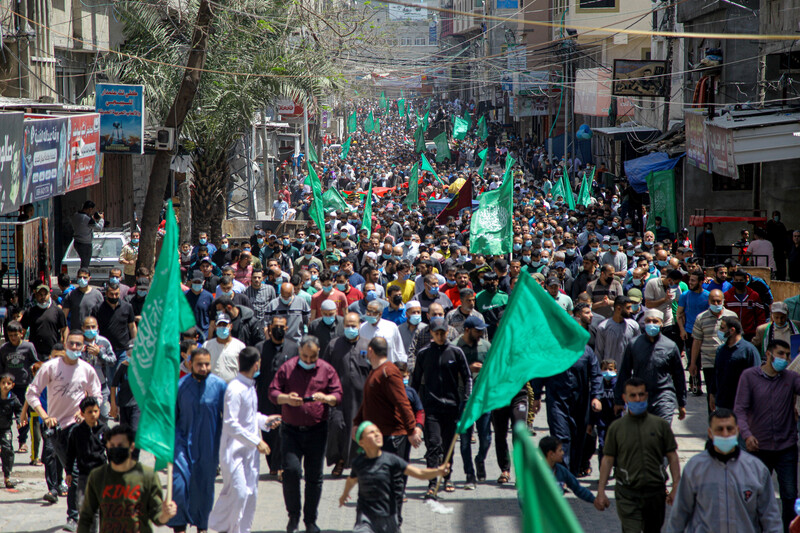
Hamas supporters in Jabaliya, northern Gaza mega concentration camp, demonstrate against the indefinite postponement of parliamentary and presidential elections as announced by Palestinian Authority leader Mahmoud Abbas, 30 April.
APA images
No comments:
Post a Comment